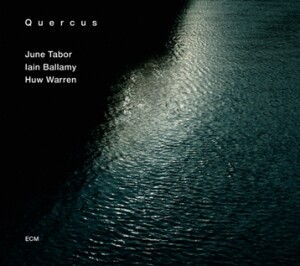 In a world filled with young divas and wannabes whose role models are the imitators of Whitney Houston’s double-barreled melisma and the manufactured pop and hip-hop princesses who can’t sing without auto-tune, it’s good to know that there are still some real singers like June Tabor. Like an actor trained in classic Shakespearean theater techniques, Tabor is capable of illuminating myriad emotions within a song without beating you over the head with them. Her voice, a rich contralto with complex overtones, is instantly recognizable whether she’s singing a centuries-old folk song, a mid 20th century love song or a modern pop song or hymn.
In a world filled with young divas and wannabes whose role models are the imitators of Whitney Houston’s double-barreled melisma and the manufactured pop and hip-hop princesses who can’t sing without auto-tune, it’s good to know that there are still some real singers like June Tabor. Like an actor trained in classic Shakespearean theater techniques, Tabor is capable of illuminating myriad emotions within a song without beating you over the head with them. Her voice, a rich contralto with complex overtones, is instantly recognizable whether she’s singing a centuries-old folk song, a mid 20th century love song or a modern pop song or hymn.
That range is on full display on this intriguing project, which pairs Tabor with a couple of jazz musicians, pianist Huw Warren and saxophonist Iain Bellamy. Tabor is best known as an interpreter of traditional British folk song – possibly the best – but she’s capable of applying her interpretive skills to all manner of song. She does that here, not as a jazz singer, but as an interpreter, finding the heart of these songs. Bellamy and Warren one moment are accompanying Tabor, providing a textural bed for her vocals, and the next are off on flights of improvisation that add their own interpretations and musical commentary to the tunes.
The piano and tenor sax twine about each other like the spring flowers in their tuneful accompaniment to “The Lads In Their Hundreds,” a selection from A.E. Housman’s lyrical but deeply tragic 1896 song cycle “A Shropshire Lad.” And the two positively frolic through the fields and forests of Shakespeare’s sonnet “Come Away Death,” as though reflecting the stark yet joyous circle that are life and death, living and dying. Their accompaniment is fairly straightforward in the very traditional Irish ballad “As I Roved Out,” which Tabor has recorded at least once before, long ago. The introductory section of “Near But Far Away” suggests the diamonds of reflected sunlight on the surface of the ocean, before the song gives way to somber verses of untrue love.
The high points of the album for me are the first and last tracks. The last surprised me. “All I Ask Of You” is a profound love song and also a hymn, set to a simple tune, all written by the former Benedictine monk Gregory Norbet. Tabor sublimely captures the varying shades of meaning in the lyric that references grey wintery roads and sunlit days and the vastness of “forever” against which only love holds its small candle. And the album opens with a similarly sublime version of Robert Burns’s “Lassie Lie Near Me.” There’s a moment in the final chorus when Tabor’s dusky voice and the closely modulated tone of Bellamy’s saxophone are perfectly in sync. “Near me near me / Lassie Lie near me / Lang has thou lain thy lane / Lassie lie near me,” she sings, and in the first three beats of that third line of the quatrain, “Lang hast though,” voice and instrument go step-by-step down the scale. It’s not a showy moment, but one emblematic of the deep empathy and clarity that define this date.
June Tabor has nothing left to prove, but that doesn’t mean that she doesn’t still give everything to every song that she approaches, and nearly every moment on this recording sees her two collaborators honoring that spirit with their own best.
(ECM, 2013)
